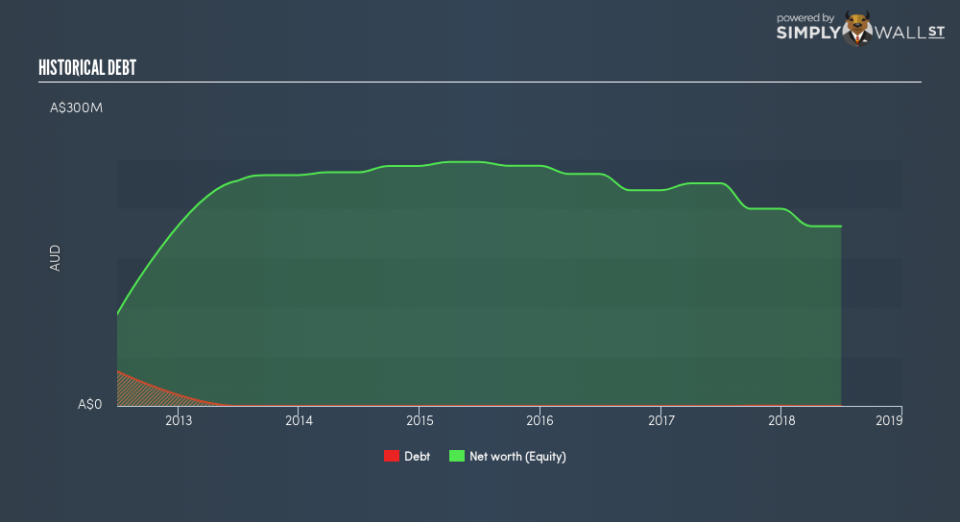Are iSelect Limited’s (ASX:ISU) Interest Costs Too High?

Zero-debt allows substantial financial flexibility, especially for small-cap companies like iSelect Limited (ASX:ISU), as the company does not have to adhere to strict debt covenants. However, it also faces higher cost of capital given interest cost is generally lower than equity. While zero-debt makes the due diligence for potential investors less nerve-racking, it poses a new question: how should they assess the financial strength of such companies? I will take you through a few basic checks to assess the financial health of companies with no debt.
View our latest analysis for iSelect
Want to help shape the future of investing tools and platforms? Take the survey and be part of one of the most advanced studies of stock market investors to date.
Is ISU growing fast enough to value financial flexibility over lower cost of capital?
There are well-known benefits of including debt in capital structure, primarily a lower cost of capital. But the downside of having debt in a company’s balance sheet is the debtholder’s higher claim on its assets in the case of liquidation, as well as stricter capital management requirements. The lack of debt on ISU’s balance sheet may be because it does not have access to cheap capital, or it may believe this trade-off is not worth it. Choosing financial flexibility over capital returns make sense if ISU is a high-growth company. ISU delivered a negative revenue growth of -2.0%. While its negative growth hardly justifies opting for zero-debt, if the decline sustains, it may find it hard to raise debt at an acceptable cost.
Can ISU meet its short-term obligations with the cash in hand?
Given zero long-term debt on its balance sheet, iSelect has no solvency issues, which is used to describe the company’s ability to meet its long-term obligations. But another important aspect of financial health is liquidity: the company’s ability to meet short-term obligations, including payments to suppliers and employees. With current liabilities at AU$41m, it seems that the business has been able to meet these commitments with a current assets level of AU$92m, leading to a 2.27x current account ratio. Generally, for Consumer Services companies, this is a reasonable ratio since there’s a sufficient cash cushion without leaving too much capital idle or in low-earning investments.
Next Steps:
As a high-growth company, it may be beneficial for ISU to have some financial flexibility, hence zero-debt. This may mean this is an optimal capital structure for the business, given that it is also meeting its short-term commitment. In the future, ISU’s financial situation may change. This is only a rough assessment of financial health, and I’m sure ISU has company-specific issues impacting its capital structure decisions. You should continue to research iSelect to get a more holistic view of the stock by looking at:
Future Outlook: What are well-informed industry analysts predicting for ISU’s future growth? Take a look at our free research report of analyst consensus for ISU’s outlook.
Valuation: What is ISU worth today? Is the stock undervalued, even when its growth outlook is factored into its intrinsic value? The intrinsic value infographic in our free research report helps visualize whether ISU is currently mispriced by the market.
Other High-Performing Stocks: Are there other stocks that provide better prospects with proven track records? Explore our free list of these great stocks here.
To help readers see past the short term volatility of the financial market, we aim to bring you a long-term focused research analysis purely driven by fundamental data. Note that our analysis does not factor in the latest price-sensitive company announcements.
The author is an independent contributor and at the time of publication had no position in the stocks mentioned. For errors that warrant correction please contact the editor at editorial-team@simplywallst.com.


